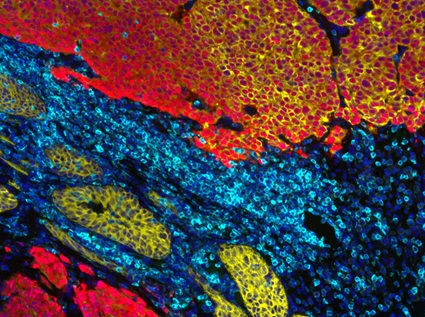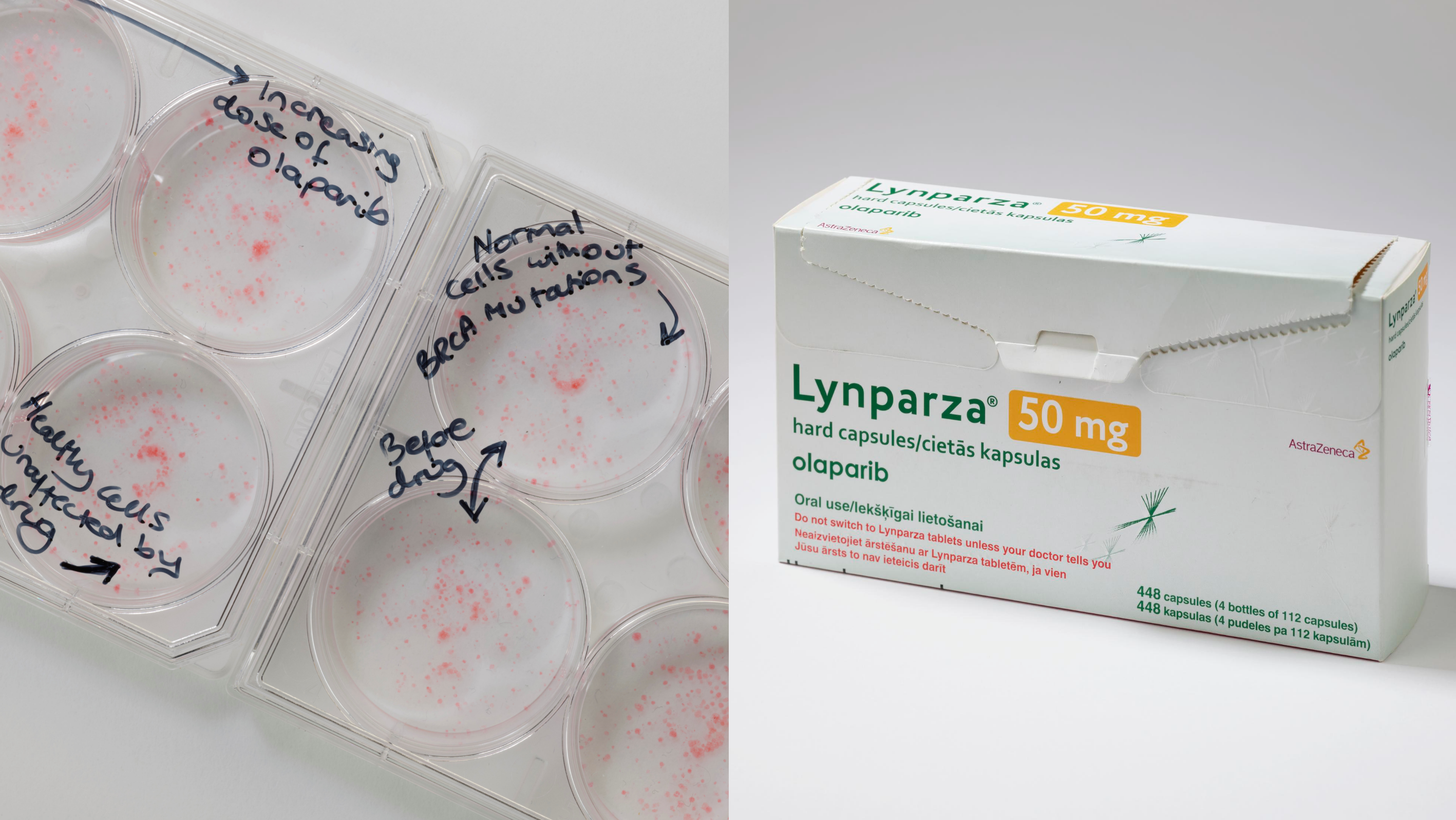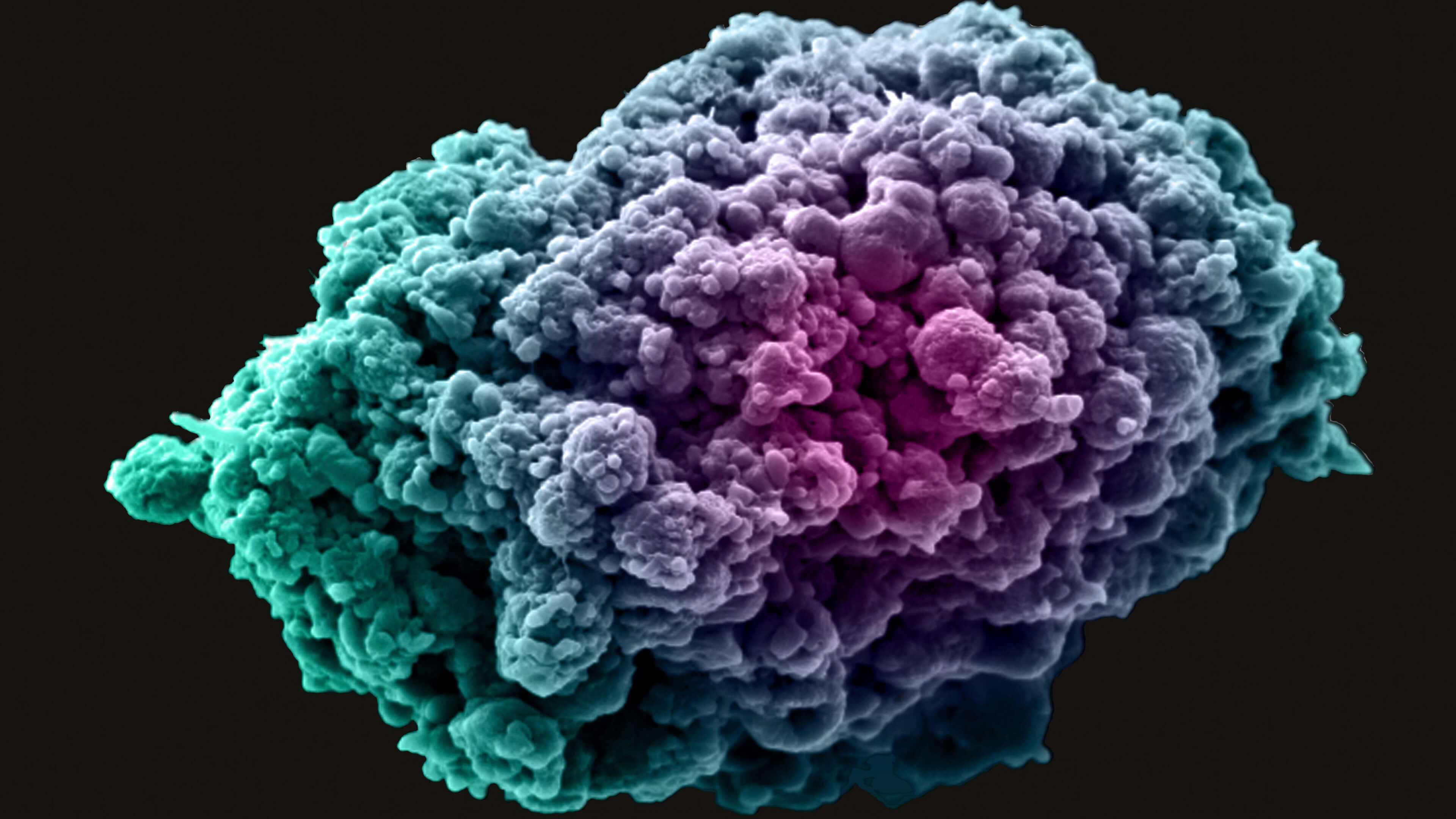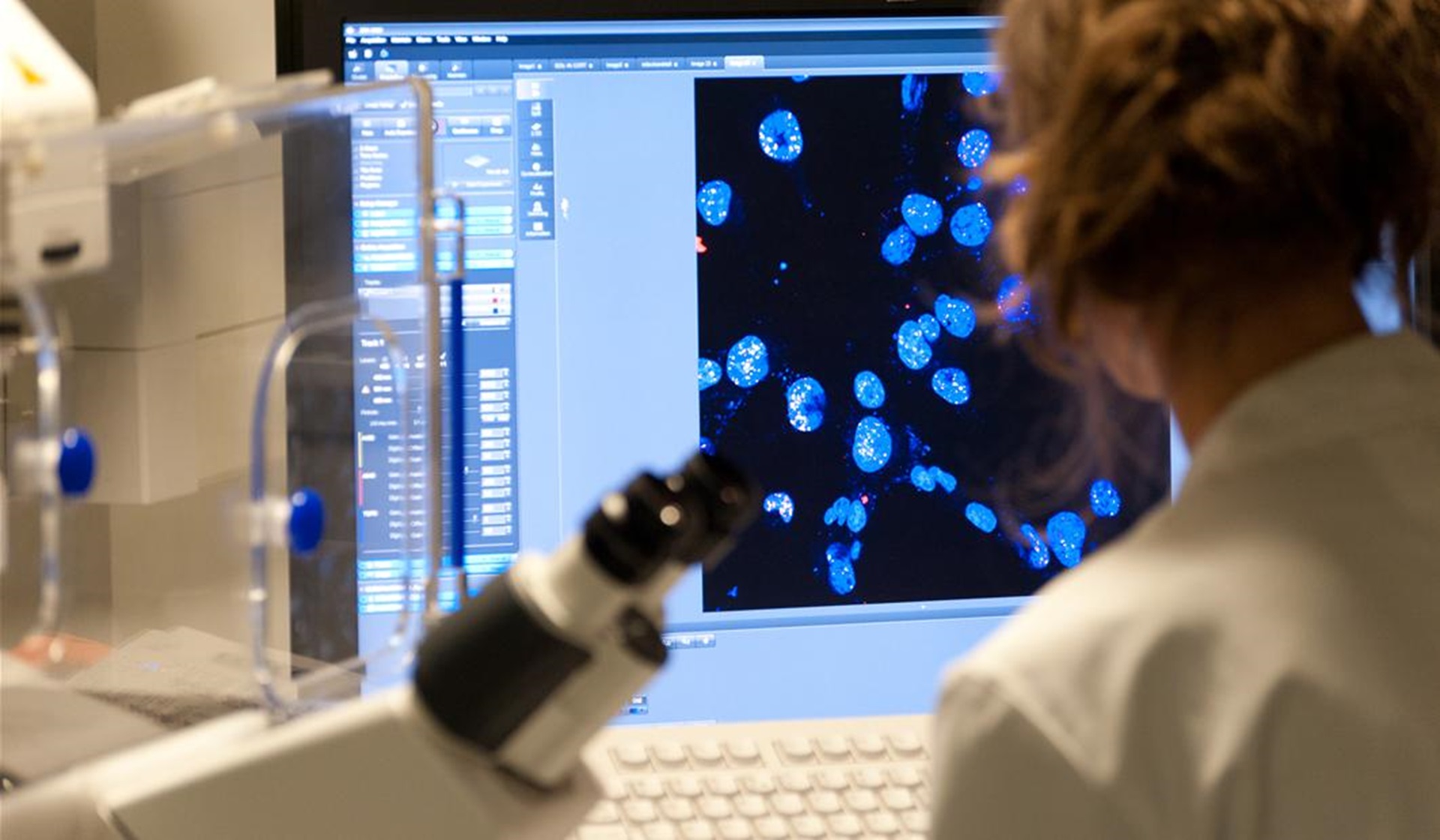Centre for Genome Stability
at the ICR and The Royal Marsden
Centre for Genome Stability (CGS) is a unique multidisciplinary programme bringing together experts from across the ICR and The Royal Marsden who work on DNA-damage response and genome instability research with clinical experts in the treatment of cancer.
How we research at this centre
Our world-leading centre of excellence aims to understand genetic, epigenetic and proteomic changes to genomic stability in the development of cancer in order to develop biomarkers and therapeutic targets for improved cancer treatment. This will allow us to apply multidisciplinary approaches to address important research questions, thus accelerating discoveries into the causes of tumorigenesis and delivering major clinical impacts, both nationally and internationally.
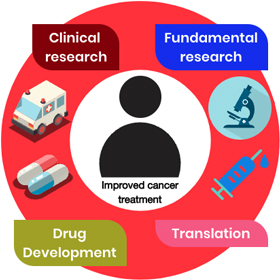
We aim to harness the breadth of expertise in genomic stability at the ICR to develop new and better therapies against cancer to make the most meaningful impact in clinics.
The centre will establish a single-domain antibody screening facility to generate DNA-repair related biomarker detection and intracellular antibody protein perturbation tools.
The Centre's main themes are as follows:
Molecular Mechanisms of Genome Stability Maintenance
Maintenance of genome stability is accomplished throughout the cell cycle by a complex network of proteins referred to as the DNA-damage response (DDR) pathways. Mutations in DDR factors are associated with elevated cancer predisposition. Understanding this will allow us to target tumour-specific DDR dependencies for improved cancer treatments.
Understanding Replication Stress Responses
Cells control DNA replication with the highest possible fidelity in order to prevent catastrophic changes to their genome. Understanding how DNA replication and repair machineries function and how these processes differ in cancer cells could provide new prognostic tools and therapeutic targets.
Integrative Systems Biology of Cancer and Ageing
We will develop tools to interrogate large data sets of genetic, genomic and proteomic information to generate hypotheses for experimental analysis, with the ultimate goal of understanding the changes that occur to the genomes and proteomes of cells as they transition to a cancerous or aged state.
Genome Instability and Cancer Therapeutics
New dependencies within the DDR pathways may represent targetable vulnerabilities in cancer cells, with a major focus on synthetic-lethal interactions and over-reliance on DDR pathways allowing for selective killing of cancer cells.
We want to accelerate the translation and delivery of our research.
As one of the world’s most influential cancer research institutes, we discover more new cancer drugs than any other academic centre in the world. We have made game-changing discoveries that revolutionised the way cancer is studied and treated.
Work with us in the Centre for Genome Stability to develop and commercialise our novel discoveries to defeat cancer. Contact us at [email protected] to work with us.
Internal collaborative opportunities
The Centre supports activities to bring together genome stability expertise across the ICR and The Royal Marsden in order to support and develop new collaborative opportunities.
Centre short talk series
Participate in our series of short talks and hear from colleagues. Next event is expected to take place in October 2024. Further details TBC.
Single-domain Antibody Facility
We have established our Single-domain Antibody Facility with ongoing pilot studies. There will be a call for screening projects.
Requirements to access the facility
Protein/antigen concentration of 500µg – 1mg, with objective of antibody for advice on tag (i.e. denatured/native form of protein). Final validation to be undertaken by research teams due to limited capacity within the facility. If you are interested to find out more, please contact Dr Divya Duscharla at [email protected].
Clinical Research Fellowships
Colleagues across the ICR and The Royal Marsden can apply to appoint Clinical Research Fellows (3-year PhD), addressing a reverse translation topic (bed-to-benchside) and involving clinical and fundamental research labs.
We are now accepting outline project proposals from potential supervisors for the next round of Clinical Research Fellowships for 2025/26 entry.
Please contact [email protected] to express your interest or if you have any questions.
Our researchers at this centre
Fundamental research
Biography
Professor Jonathon Pines is the Chris Marshall Chair of Cell Biology at The Institute of Cancer Research. He moved to the ICR in 2015 to take up the position of Head of the Division of Cancer Biology.
Jon's research is focused on understanding how cells divide, in particular how the machinery that controls mitosis is regulated in space and time.
During his PhD, under the supervision of Sir Tim Hunt, Jon was the first to clone cyclin B – the critical protein for regulating mitosis in animal cells. His work led towards the identification of cyclins in all other eukaryotes.
Jon carried out postdoctoral work in Professor Tony Hunter’s group at the Salk Institute in La Jolla, California. Here he cloned the first human cyclins - A and B1 - and began to map their interactions with other proteins involved in regulating the cell cycle and in promoting cancer.
After completing his postdoctoral training, Jon set up his own laboratory at the Gurdon Institute in the University of Cambridge, continuing his investigation into how cells regulate growth and division. His research focus shifted to assess the importance of the spatial regulation of the cell cycle machinery and he pioneered assays to follow the dynamic changes in protein localisation in living cells using fluorescent proteins. These assays also proved powerful ways to measure the destruction of key cell cycle regulators during the cell cycle, allowing his group to determine how cell division is coordinated by proteolysis.
Jon’s research has recently been examining how the spindle assembly checkpoint controls the destruction of cell cycle regulators to ensure that the two daughter cells receive an equal and identical set of chromosomes when a cell divides. This equal segregation of chromosomes is essential to make sure cells remain genomically stable – and when the process goes wrong it can lead to the development of cancer.
In 2016, Jon’s outstanding contributions to the field of cell division were recognised with his election as a Fellow of The Royal Society.
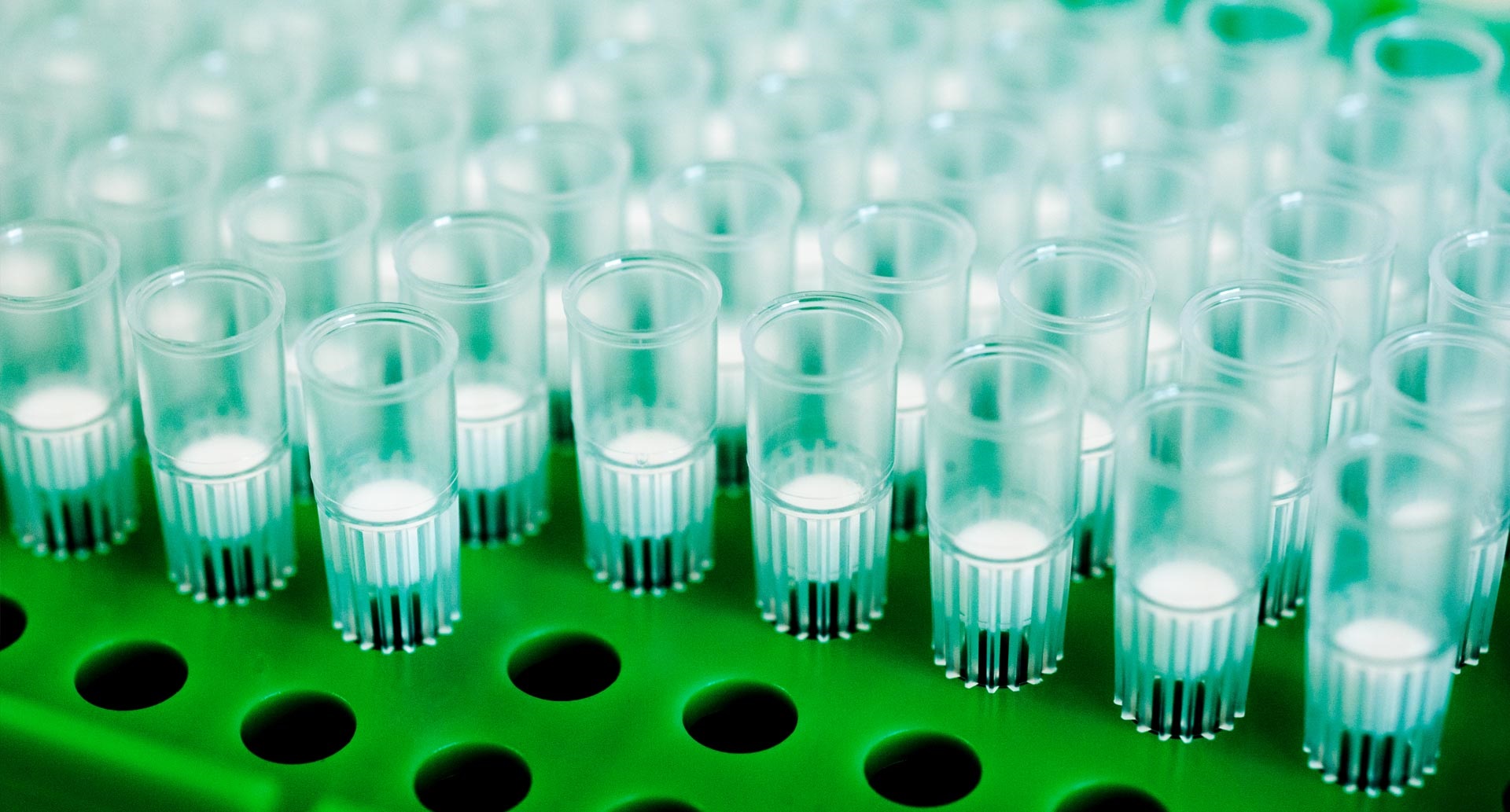
.png?sfvrsn=38d02ad6_1)
